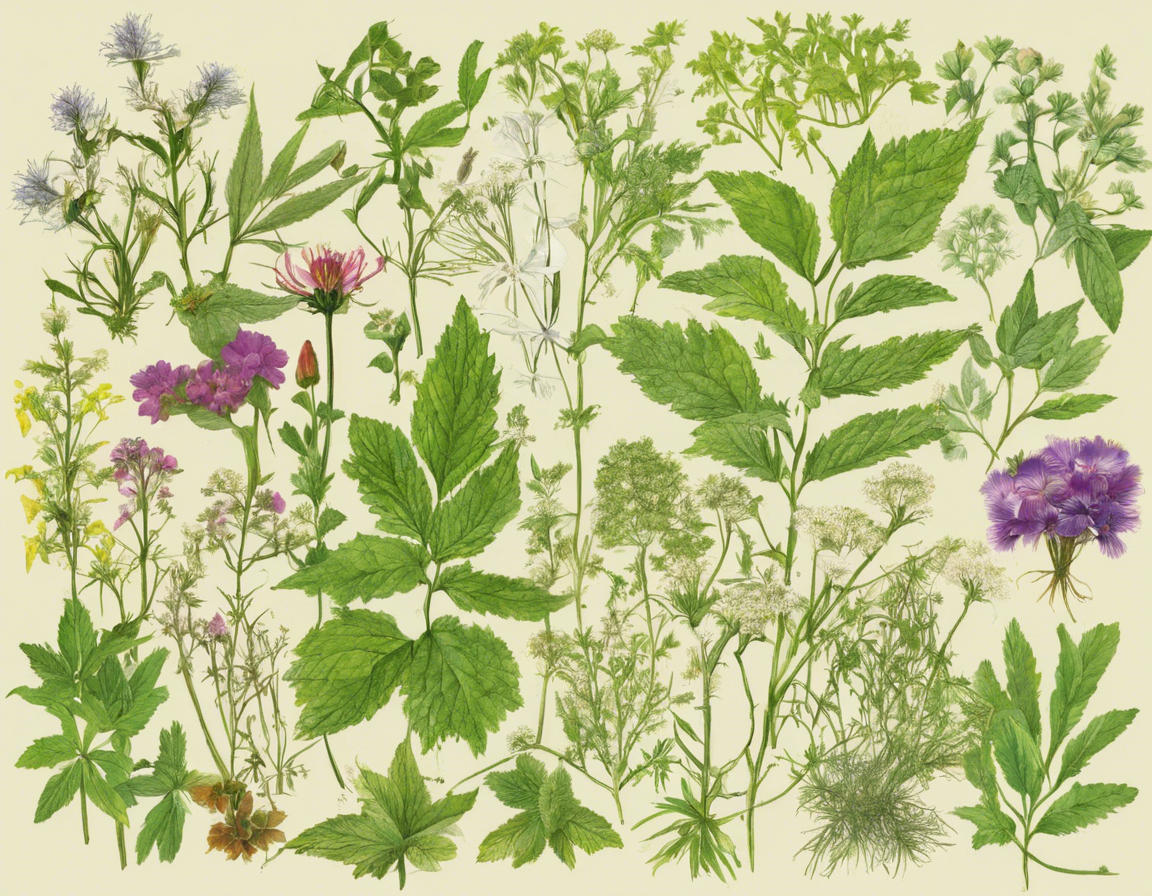
Throughout history, herbal remedies have been used as a natural and holistic approach to healing the body and mind. The use of herbs for medicinal purposes can be traced back thousands of years, with ancient civilizations harnessing the power of plants to promote health and well-being. In recent times, there has been a resurgence of interest in herbal pathways as people seek alternative therapies that are gentle on the body and free from harsh chemicals.
In this comprehensive guide, we will explore the world of herbal remedies and delve into the benefits, uses, and potential risks of incorporating them into your wellness routine. From common kitchen herbs to exotic plants from distant lands, there is a vast array of herbs to discover and incorporate into your daily life. Whether you are looking to alleviate common ailments, boost your immune system, or simply enhance your overall well-being, there is an herb out there for you.
The Power of Herbal Remedies
Herbal remedies encompass a wide range of plants, flowers, roots, and seeds that have been used medicinally for centuries. These natural remedies contain a variety of compounds that can have therapeutic effects on the body, including anti-inflammatory, antioxidant, and antimicrobial properties. Unlike pharmaceutical drugs, which often target specific symptoms or conditions, herbal remedies work in a more holistic manner, addressing the root cause of imbalances within the body.
One of the key benefits of herbal remedies is their versatility and adaptability. Many herbs can be used in various forms, such as teas, tinctures, capsules, and topical ointments, making it easy to incorporate them into your daily routine. Additionally, herbs can be combined to create custom herbal blends that target specific health concerns or promote overall wellness.
Common Herbs and Their Uses
1. Lavender
- Known for its calming properties
- Used to promote relaxation and relieve stress
- Often found in aromatherapy products and sleep aids
2. Echinacea
- Popular for its immune-boosting properties
- Used to shorten the duration of colds and flu
- Available in various forms, including teas and supplements
3. Ginger
- Well-known for its anti-nausea effects
- Used to aid digestion and reduce inflammation
- Can be consumed fresh, dried, or as a tea
4. Chamomile
- Valued for its soothing properties
- Used to promote relaxation and improve sleep quality
- Often consumed as a bedtime tea
5. Turmeric
- Recognized for its anti-inflammatory benefits
- Used to support joint health and reduce pain
- Contains the active compound curcumin
Safety and Precautions
While herbal remedies can offer a natural and gentle approach to health and wellness, it is important to use them with caution. Some herbs can interact with medications or exacerbate certain conditions, so it is always wise to consult with a healthcare professional before incorporating new herbs into your routine, especially if you are pregnant, nursing, or have underlying health concerns. Additionally, quality and dosage are crucial when using herbal remedies to ensure their safety and efficacy.
Incorporating Herbs into Your Lifestyle
There are numerous ways to incorporate herbal remedies into your lifestyle and reap their benefits:
- Herbal teas: Enjoy a soothing cup of herbal tea to relax and unwind.
- Topical applications: Use herbal ointments or oils for skin care or relaxation.
- Cooking with herbs: Enhance the flavor of your meals with fresh or dried herbs.
- Herbal supplements: Take herbal supplements in capsule or tincture form for targeted support.
- Aromatherapy: Use essential oils derived from herbs for therapeutic purposes.
By experimenting with different herbs and delivery methods, you can discover what works best for your body and preferences. Whether you are looking to support your immune system, improve digestion, or simply enjoy the calming effects of certain herbs, there is a wide world of herbal pathways waiting to be explored.
Frequently Asked Questions (FAQs)
- Are herbal remedies safe to use?
-
While herbal remedies can be safe for many people, it is essential to research and consult with a healthcare professional before use, especially if you have underlying health conditions or are taking medications.
-
Can herbs interact with prescription medications?
-
Yes, some herbs can interact with prescription medications, either enhancing or inhibiting their effects. It is crucial to disclose all herbs and supplements to your healthcare provider to avoid potential interactions.
-
Are herbal supplements regulated by the FDA?
-
Herbal supplements are not as strictly regulated as pharmaceutical drugs by the FDA. It is important to choose reputable brands and sources when purchasing herbal supplements to ensure quality and safety.
-
How long does it take to see results from herbal remedies?
-
The time it takes to see results from herbal remedies can vary depending on the herb and the individual’s body. Some people may experience immediate effects, while others may require consistent use over time to see noticeable benefits.
-
Can I grow my own herbs for medicinal use?
- Yes, many herbs can be grown at home and used for medicinal purposes. This allows you to have fresh herbs on hand for teas, tinctures, and culinary uses. Be sure to research the specific growing requirements of each herb for best results.
In conclusion, herbal pathways offer a natural and sustainable approach to health and wellness, allowing individuals to tap into the healing powers of plants that have been used for centuries. By exploring the world of herbal remedies, you can discover new ways to support your body, mind, and spirit on your journey to optimal well-being.
